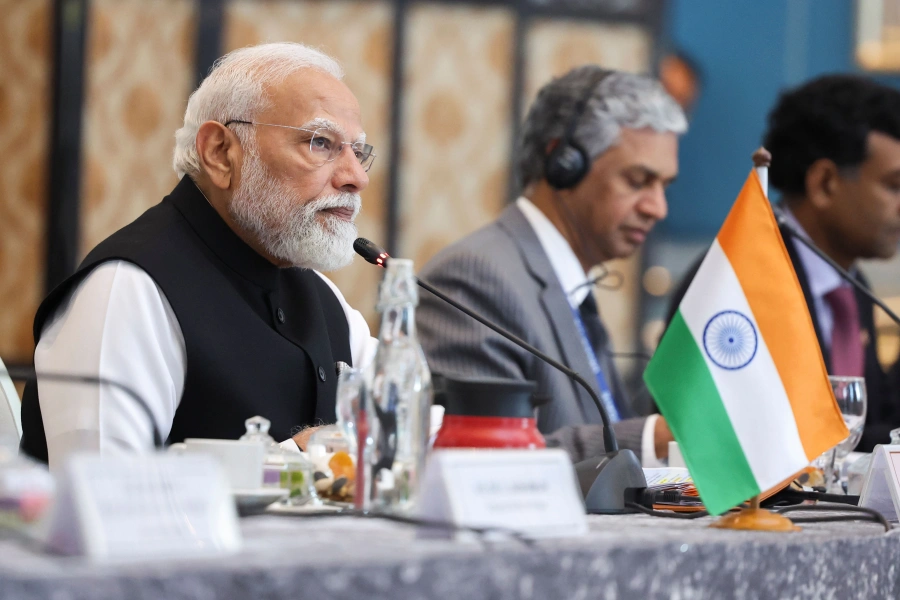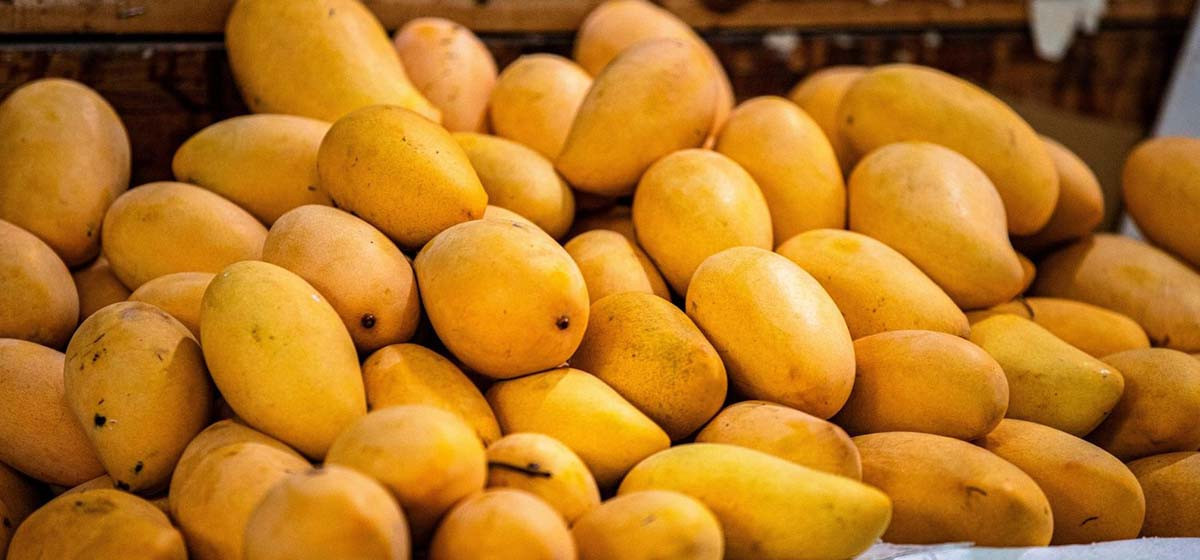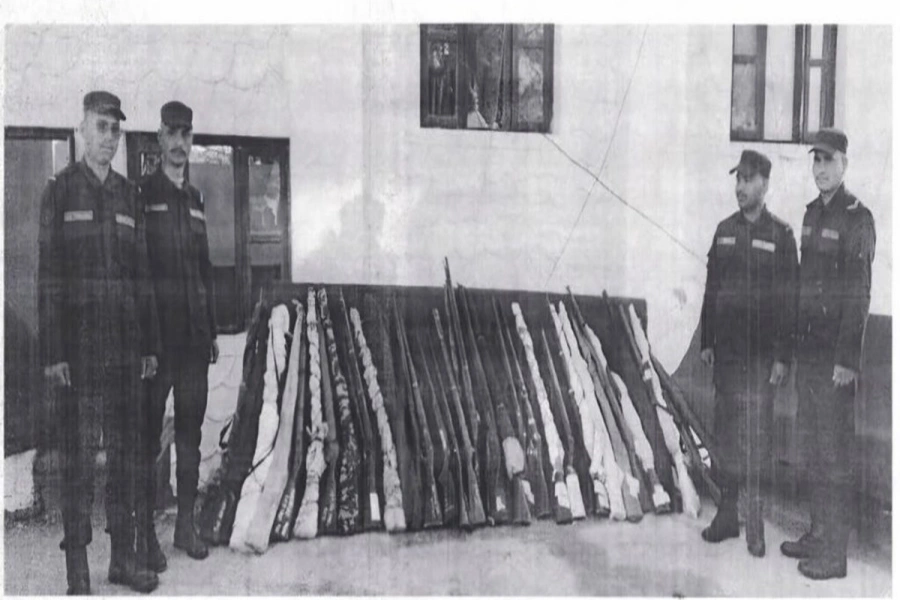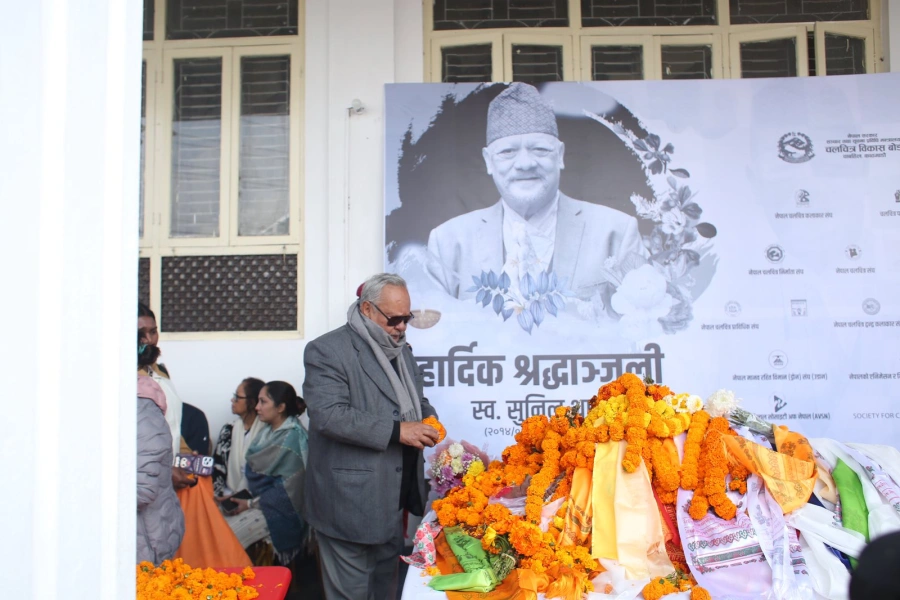She eclipsed every other competitor in the entire village. Her supple long stem, unlike the plump of mangoes, displayed more of a coconut twist, with a bun of leaves intertwining a network of branches, as if she were a lollipop.
During the springs, she never stooped low to the excess of fruits. Her ripe delicacies draped in green accompanied by the marker of thick-red stroked on the curves of the petiole side looked like a little fusion of emeralds and rubies. The red persisted from the cover to the pulp, invoking delights to the tastebuds when eaten. The leaves grew red too, and her entire self looked similar to a newlywed queen with henna hair and tattoo designs, and a tiara of golden-green leaves laced with red wine.
When the mid-June rough winds blew, she twisted and turned to welcome the cool air fatigued by hundreds of miles of travel. While doing so, she shed off small meteor showers of sweet mangoes. Like a meteor shower, the plump mangoes fell on the ground with such high speed, the ripe ones would be dented, torn to pieces or completely decimated into juice. The winds also made her dance, and when she did, she swayed and swirled continuously through her leaves and the branches, producing the enticing sound of her musical anklets.
The only birds that she hosted for feasts were parrots. The villagers would never see a crow perching on her. Sometimes, a cuckoo, but never a crow; not even in the fall when she stood barren, undead.
Of all the fruit trees and shops on either side of the gravel road to Kailashpuri, Mukhiya Ba’s orchard was most consistently flocked by children on their way back home from school. There were mangoes, guavas, bananas, mulberries, coconuts, litchis, and all sorts of seasonal as well as perennial fruits in the orchard. This meant, on any given day throughout a year, there always was a possibility to find some kind of tasty delight lying lifelessly on the orchard grounds. This possibility, bewitched the children.
During winters, she was invisible to the eye. Even the bland perennial bananas shadowed her presence.
Spring was her season. She looked vivacious and voluptuous. Not every child in the village could get their hands on the red jewel but every child in the village had either tasted or heard about the heavenly mangoes. She bloomed into the orchard’s prized jewel during the season, eclipsing all her mango brethren and even the perfectly ripe litchi. The taste of her fruits were so unique, children would share a single mango among a group of dozen so that everyone could taste the fruit.
Throughout the spring, after their classes were over, children appareled in ragged clothes unwashed for weeks, dashed to her, en route to their houses kilometers away, with the hope of chancing upon the mangoes. Some rode their fancy little bicycles seeking advantage over their peers but their dry cheeks and rough skin were the same, with their drooling and sweat settling down their chins.
Every day was a blood race, a tussle between the children — some as little as three to some in their late teenage — to reach the tree first and search for fallen mangoes in the proximity. One only had a proper chance at finding a mango if one was the first to reach the scene. But, at times, even reaching the site fastest was not enough since there would be Bablu and his two comrades — Shelu and Bunty, collecting all the fallen mangoes and protecting the ones yet to fall from damage.
According to Mukhiya Ba, his kingly grandson, Bablu Raja had been guarding the fallen fruits since the boy was four.
“I remember,” the village landlord would brag around a host of his Mukhiya friends, “I gave Raja one of those mangoes in his fourth spring and next thing I knew was he had started sitting under the tree, his Rani, waiting for another one to fall.”
Even the other Mukhiyas envied Ba for having Rani and he found pleasure in their envy.
Bablu’s grandma maintained a different account of how Bablu started guarding the tree. As per her, when the little rascal was in Nursery grade, he saw some kids take some mangoes from the orchard one day after school. He managed to chase them away but they had taken his prized possession away.
Mango production in Saptari expected to double this year

“I had never seen him cry for so long, not even when he wanted cotton candy,” she used to say, “He would eat more than five mangoes every day in the spring, but that day, he refuted to eat any.”
Whatever the origin story, Bablu had cultivated the habit of guarding the tree. For six years, he kept an eye on the tree with the help of his comrade in arms, Shelu. She had been around him ever since he remembered. She was the daughter of his household servant Ganesh. She was studious, ambitious, and obstinate; an ode to the financial struggle and hardship bestowed by the timeless caste discrimination. Together, the children kept a tab for every mango thief so that Bablu could remember who had looted his treasure. For six long years, his classmate Bunty was his number one adversity.
Bunty was not one of the intelligent children in the village. Neither was he a hardworking one. He was sitting in the second grade for the third time when he was nine. He was three years older than Bablu. His father Sahadev pulled a Rickshaw to and fro the Bazaar and his mother Ambika worked in the fields of Mukhiya Ba and herded two goats for milk. Rani was the very reason Bablu and Bunty came to forge the friendship from the tender childish animosity. How they became friends is a story for another day.
Aged Nine, Bablu saw his entire world crumble down when he finally found out that he had lost his grandmother to Malaria a year prior.
A year of the mute conundrum passed and in the following spring, Mukhiya Ba decided to send his ten-year-old prized grandson away to a boarding school in the capital. Beginning from then, Bablu only visited the village twice a year: during the late summer Dashain vacation and the winter break. Within months after graduating high school in Kathmandu and having secured a half-decent scholarship Bablu, like every other kid whose parents own a piece of land in Nepal, then went to Australia to continue his studies.
Back at the village, Shelu’s spinoff with education did not last long enough. She was studious and ambitious about her studies and scored near perfect marks in every exam but her family fell far short of her tuition fees. Ganesh decided to transfer his ninth grader daughter to home school, where the teachers were her parents; the subjects were cooking, washing clothes and dishes, and helping out in the fields; and the graduation certificate was an arranged marriage.
Shelu wished to be an educated girl but forgot that the shackles of society differentiate their slaves on the basis of wealth and power, not education or hard work. The affluent owner of the school even had his dimwit son pass grade ten with ease when every teacher in the school knew he could not solve basic math problems let alone conjure all the alphabets properly. The impoverished farmer could not afford to send his bright child to school.
According to Shelu, the gods had cursed her family to be poor and she was bearing the consequences. Her mother affirmed this belief by stating that they were sudras — the lowest caste in hindu society, and therefore, deserved no education.
“On top of that, you are a woman,” Shelu was told by her mother, “It is not a woman’s place to gain education alongside men.”
“Then, what am I supposed to do?” Shelu enquired.
“It is a woman’s dharma,” her mother said, “to look after the house, the fields, and the man, and bear him sons.”
At sixteen, her nuptials were tied to a middle-aged man named Rahat who supposedly owned a “Lucky Paan shop” at the Chapur Bazaar.
For Ganesh, it was a prospect too good to reject. He did not imagine that his elder daughter would get a groom who owned a business. To add delight to his newfound luck, Mukhiya Ba gave away three goats to the groom as dowry. All this while, nobody even thought of asking Shelu for her opinion of the groom.
She saw Rahat for the first time during the very day of marriage. His rough dark scalpel had barely any hair. He had a crooked nose, big black eyes, paan-stuffed mouth, and grey hair strands protruded out of his nostrils and ears. A haphazardly kept mustache covered half of his upper lip while rough patches of facial hair on his cheek made up for a sparse beard. He had donned grey shiny pants with a yellow shirt which was originally supposed to be white. A gigantic belly hung out under his chest straining the buttons to a possible explosion.
When he first took a look at the teenage girl, Rahat was so dumbstruck by her beauty, he unintentionally shed a long stream of red paan embellished saliva from the tip of his mouth. He looked like a child drooling over a lollipop. Shelu was frightened when she saw the look in his eyes. She did not like a single detail about Rahat. She did not want to marry a man three decades older than herself. She wished to continue her studies. But it was a marriage arranged by the elders and even though she was the bride, she had absolutely no say. It was as stupid as arranged marriages get.
A couple of weeks after the marriage, Ganesh travelled to visit his daughter only to find out that there was no Lucky Paan shop in Chapur Bazaar. And that no such person called Rahat existed. He had dealt Mukhiya Ba the loss of three plump goats.
Meanwhile, Bunty dropped out of school after sitting in ninth grade for two years. By then, the twenty year old boy had developed a reputation for being the village fool. Be it the lollipop incident, the bamboo shoot mushroom incident or any other of his foolish tales, his dimwitted anecdotes brought laughter into the villagers’ life. Among the fans of his innocent ignorance was Mukhiya Ba who coined the term “Buddhu Raja” meaning “Dimwit King” as a nickname for Bunty. The only thing more acute than his idiocy was his love for pork.
Without proper education his only option was to work in the fields during paddy and sugarcane harvest seasons, and labor in the brick factory during other times. Bunty became the breadwinner for his family after his father was claimed by Tuberculosis. Feeling pity for the post teenager, Ba took him in as his chief helper in his household. He moved into the thatched cottage in the Mukhiya’s private property.
From then, he started working every odd job in the household.
“Raja, feed the cows!”
“Raja, run the oxen in the paddy harvest.”
“Raja, build a bamboo swing for Dashain.”
In a few years, he became Ba’s hands and legs in the village.
Of all the works he did for the household, his favorite one came in the spring. Buddhu Raja loved to collect mangoes from the Mukhiya’s orchard, especially from the Mango Queen. He loved Rani as his own. He cleaned the areas around her feet, trimmed the wild grass and bushes so that the Mangoes would not be eaten by the tiny creatures in the bushes. And all this while, he kept on guarding the tree every spring, in place for his childhood friend Bablu. He chased after school children and collected the fallen fruits. He safeguarded his comrade’s love so that Bablu would be able to taste the rubies when he returned.
In 2005, when the Swine flu swept across the nation, it was no surprise that Bunty caught it too.
“Why would I stop eating heaven because of some goddamn flu?” He would ask anyone who told him to stop.
Tragically or not, Buddhu Raja succumbed to the flu. His funeral was attended by none due to the fear of the virus.
The following spring something bizarre happened in the Mukhiya’s orchard. Rani did not bear her red jewels. And the streak continued for five years when Ba finally decided to bring her down.
“Without Raja, Rani became a widow,” Ba said.
It was a painful day not just for Ba but for the entire generation of school children when Rani was felled. And no one told this to Bablu who was then in Australia.
Bablu only returned home from Australia after receiving his bachelors’ degree. During his time at the foreign nation, he had come to know about both Shelu’s disturbing marriage and Bunty’s death. But he felt no remorse for them. One thing he had learned from his life in the cities was that nothing is permanent.
Ba reached the Mahendra highway to receive his grandson. They mounted an electric rickshaw back home and along the kilometer long ride Bablu could not help notice how the village had now blossomed into a bustling little town with newly built houses occupying spaces where used to be bee-loud glades. The trees were sparse, the streets less congested, and the houses turned concrete from thatched, but the people who lived there were the same. He could observe high familiarity in the faces.
The first thing he noticed when he reached home was a sliced trunk where Rani once stood proud. He turned to his grandfather.
“Ba, Rani?” he enquired.
“Your uncle wished to build a house on that spot,” the elderly said, “so we had to bring her down.”
Bablu felt a certain void feeling in his heart but he managed to flash a half-smile. He stared at the cut stem in silence. He finally mustered up a sentence.
“Well, change is inevitable.” he said and tread the heavy steps away from the tree and from his childhood memories.





































